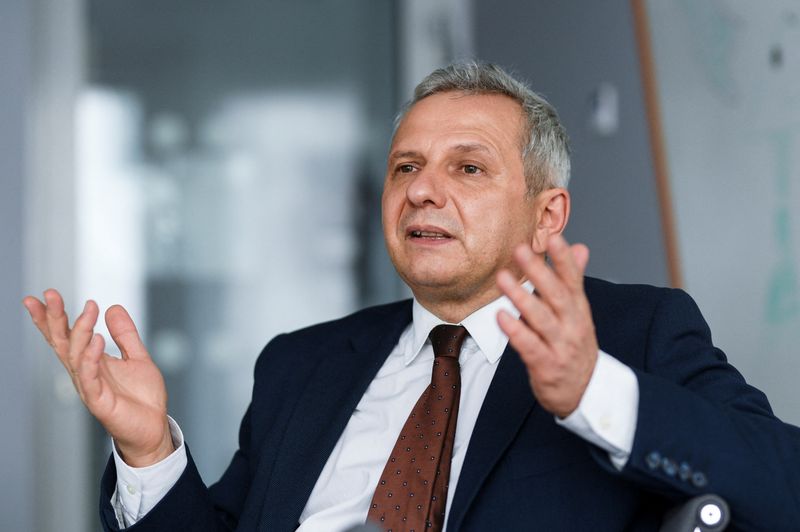By Sarah Marsh
BERLIN (Reuters) - Russia's first mobilization since World War Two makes more urgent the need for a cap on Russian oil prices to cut off the "blood money" supporting its war in Ukraine, a senior economic adviser to Ukrainian President Volodymyr Zelenskiy told Reuters.
Separately, Oleg Ustenko criticized updated European Union guidance on sanctions on Russian coal shipments that he said could enable companies to transport Russian coal to third countries, which was not in the original spirit of the deal.
The shift was "unacceptable" and he could not understand that kind of "flexibility", he said on Wednesday during a visit to Berlin as part of a tour of Europe to discuss sanctions.
"Russia is putting up a last fight, so we have to be even more united, including on sanction policy," Ustenko said. "We need to cut off the regime's blood money, that they're using to kill our people."
The Group of Seven (G7) wealthy democracies is trying to find ways to limit Russia's lucrative oil export revenue following its invasion of Ukraine in February.
Several different countries have banned imports of Russian crude and fuel, but Moscow has managed to maintain its revenues through increased crude sales to Asia, particularly China and India.
The G7 hopes to curb them with the global cap on prices for Russian crude it wants to launch by Dec. 5, when new European Union sanctions initiate a ban on Russian oil imports.
"We are moving quite fast with the price cap mechanism, the discussions are almost finalized," said Ustenko.
Russia has vowed to halt sales to countries imposing the price cap mechanism. Ustenko said he did not believe it could follow through on this.
"The Russians do not have any other choice rather than to follow up the common rules which are on the market," he said.

Separately, Ustenko said Ukraine had been able to move more grain than he had expected under a U.N.-brokered deal for exports via the Black Sea. The war was inevitably lowering future yields, however, due to mined fields and difficulty tending to the crop.
"It's just another argument why the war has to be stopped," Ustenko said.